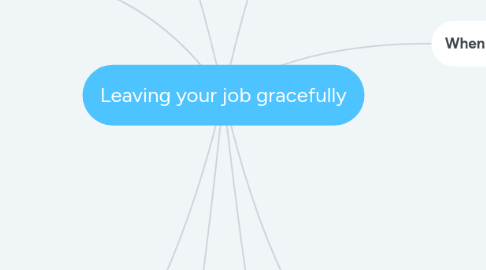
1. How search differs after your first job
1.1. You'll get more recruiters coming to you
1.2. You've learned more about what aspects of your job you like and what you don't
1.3. Easier to get to the first hiring screen
1.4. Network in data science is more developed
1.5. Don't be afraid to apply for jobs
1.5.1. Even if you're reasonably happy at your current one
1.5.2. If you don't pass a tech screen, that doesn't mean you're a failure or "fake" DS
2. Deciding what you want
2.1. Find a company that values the same things as you or has the structure you're looking for
2.2. Don't apply to a company where you'd face the same issues that are causing you unhappiness now
2.3. Think in terms of five years, not the next two
2.4. Protect your market value
2.4.1. If you're a data scientist, don't become a data analyst
3. Interviewing
3.1. "Why are you leaving your job?"
3.1.1. Good answer: "Looking for challenges"
3.1.2. Don't bad-mouth your current job
3.1.3. Discuss contributions in a general way
3.2. If you don't know something
3.2.1. Don't be afraid to admit it
3.2.2. Say that you haven't found a chance to use it yet
3.2.3. No one knows everything, we hope that you've been doing a pretty good job as a data scientist so far
3.2.3.1. Have faith in that
3.2.4. Always better to demonstrate willingness to learn than to try to fake your way through
3.3. Be selective
3.3.1. Don't set up a dozen phone interviews and two onsites in a week
3.3.1.1. Will affect your job performance
3.3.2. Be selective in two stages
3.3.2.1. Applying in the first place
3.3.2.2. Advancing after the initial phone call
3.3.3. It can be flattering but don't waste time with a company that you know isn't a good fit
3.4. Continue to do good work at your job
3.4.1. You may need a reco from your manager one day
3.4.2. The company is still paying you
3.5. It's OK to decide to call off your job search
3.5.1. You may realize that the grass is not always greener
3.5.2. Make sure you've tried to solve any problems you can at your current job
4. Considering counteroffer
4.1. It's a mixed bag
4.2. Company now knows that you're a flight risk
4.2.1. May be reluctant to give you serious responsibilities
4.3. The situation may also strain your relationship with your manager
4.4. But the company may be willing to address the main reason why you're leaving
4.5. It's unlikely that the change you desire can be brought about in a counteroffer
5. Intro
5.1. There's always going to be uncertainty
5.1.1. No matter how much research or how many questions
5.2. You can understand the big things
5.2.1. But not how you'll feel day to day until you're living it
5.3. Yet, it's a usually rewarding experience
5.3.1. New areas of DS
5.3.2. Dramatically higher salary
6. When to leave
6.1. Make sure you're always learning
6.1.1. It slows if you stay in one role
6.1.2. If you don't grow, finding your next position will be harder
6.1.3. Senior DS needs both breadth and depth
6.2. Tell your manager what you'd like to change
6.2.1. Do this before you decide to run
6.2.2. Check if your boss's critical path aligns with yours
6.2.3. Have you spent time thinking about what you do and do not want in your next job?
6.3. Leaving without another job is risky
7. Giving notice
7.1. Give at least two weeks' notice
7.2. It's possible that as soon as you give your notice, your manager will tell you to leave
7.2.1. Be prepared for that possibility
7.2.2. Make sure you've forwarded anything personal on your work computer
7.3. Your boss should be the first person to know you're leaving
7.3.1. Give notice in person if co-located
7.3.2. Otherwise, by phone or video call
7.3.3. Don't give notice by email
7.3.4. Start the conversation by expressing gratitude
7.3.5. Assure them that you'll help with transition
7.4. Talk to your manager about how they would like to let the rest of the team know
7.4.1. Don't schedule meetings before talking to your manager
7.4.2. Be wary of being negative
8. Making the transition easier
8.1. Make a transition doc for your manager
8.1.1. Responsibilities
8.1.2. What you can wrap up
8.1.3. What needs to be transferred (and suggestions about who could pick it up)
8.1.4. What will have to wait until someone new is in the role
8.2. Try to clean up any loose ends
8.2.1. Adding tutorials
8.2.2. Organizing your files
8.2.3. Adding comments and explanations to analyses
8.2.4. The worst thing to do is forget that you're the only person who knows how to do x, and leave it unassigned
8.2.4.1. You may get frantic emails or calls after you leave
8.2.4.2. You should gently point to exit documentation until they get the hint
